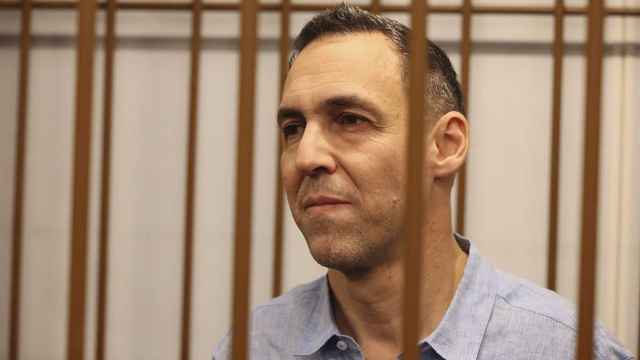Russian companies are making strong inroads into Brazil, a fellow top-league developing economy that has long lain out of its range of interest.
Both countries are members of BRIC — a group that also includes such longtime Russian partners as China and India — which held a maiden summit of its leaders in 2009.
"That BRIC forum was a powerful factor to make relations more dynamic" with Brazil, said Sergei Vasilyev, chairman of the Russian-Brazil Business Council.
Brazil and Russia could expand the range of goods they trade, according to Vasilyev.
- Power Machines is negotiating deliveries of its energy equipment to Brazil.
- United Grain Company is looking to fill the void left by Argentina as a supplier of grain to Brazil. Due to stringent agriculture sanitation rules, one option is to supply grain to the less populous northeast Brazil to mill it all into flour on the spot, thus containing the threat of insect contamination.
- Embraer is trying to find a Russian partner to assemble its planes in Russia, where they have yet to be certified.
- Marco Polo is talking to Kamaz about assembling its buses here.
- Brazilian companies offer supplies of medicines and health care equipment.
Three major Russian companies — oil producer TNK-BP and steelmakers Severstal and Mechel — have since agreed to invest there in deals announced this year.
"They can be the locomotive that will break the wall," said Vasilyev, who is also deputy chairman of VEB, the government's development bank.
Gazprom opened an office in Rio de Janeiro last week to oversee its plans in the country and broader Latin America. It had signed a memorandum of understanding with Brazil's state energy producer Petrobras in 2007, but the two haven't moved forward yet.
Leaders of BRICS, the BRIC grouping plus South Africa, had their latest meeting on the sidelines of the Group of 20 gathering in Cannes, France, last week, to talk about feeble global finances.
Coined by U.S. economist Jim O'Neill in 2001, the original term BRIC denoted the world's large fastest developing economies. The countries decided to expand their ranks to include South Africa in February.
The latest deal with Brazil came last week when TNK-BP, a Russian-British company, announced an agreement to buy 45 percent of the Solimoes Basin project for $1 billion from the Brazilian company HRT Participacoes em Petroleo. They will jointly produce oil and gas from fields near the Amazon, with first output expected next year.
In May, Severstal said it acquired 25 percent in Brazilian iron ore exploration company SPG Mineracao for $49 million.
The first Russian investor in Brazil was billionaire Igor Zyuzin, the principal owner of leading Russian steelmaker Mechel, traded in New York. He agreed to set up a joint venture with Usina Siderurgica do Para, an iron producer, in a $800 million deal announced in February.
"It represented the first business of the Russians in Latin America," law firm Tauil & Chequer, which acted as counsel, said at the time. "The success of the project, which involves a $5 billion investment, will certainly contribute to the expansion of the Russians in the steel sector and its rapid growth in emerging markets.
Russia's trade with Brazil is expected to reach $7 billion this year, posting growth of almost 20 percent from last year, the Kremlin said in a statement last week. For comparison, Russia and its biggest trade partner China will likely exchange goods worth at least $70 billion this year.
Incoming from Brazil are meat, sugar and breed herd, while outgoing are fertilizers and oil.
To raise awareness of Russia in Brazil, the business council helped a deal for Brazil's major daily Folha de Sao Paolo to publish an insert with articles from the Russian government's Rossiiskaya Gazeta every month, Vasilyev said.
A Message from The Moscow Times:
Dear readers,
We are facing unprecedented challenges. Russia's Prosecutor General's Office has designated The Moscow Times as an "undesirable" organization, criminalizing our work and putting our staff at risk of prosecution. This follows our earlier unjust labeling as a "foreign agent."
These actions are direct attempts to silence independent journalism in Russia. The authorities claim our work "discredits the decisions of the Russian leadership." We see things differently: we strive to provide accurate, unbiased reporting on Russia.
We, the journalists of The Moscow Times, refuse to be silenced. But to continue our work, we need your help.
Your support, no matter how small, makes a world of difference. If you can, please support us monthly starting from just $2. It's quick to set up, and every contribution makes a significant impact.
By supporting The Moscow Times, you're defending open, independent journalism in the face of repression. Thank you for standing with us.
Remind me later.





